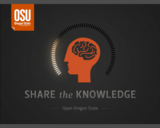
Students will learn how to use a flow cytometer
- Subject:
- Anatomy/Physiology
- Biology
- Life Science
- Material Type:
- Interactive
- Module
- Provider:
- Oregon State University
- Author:
- Open Oregon State
- Oregon State University
- Date Added:
- 05/18/2021

Students will learn how to use a flow cytometer
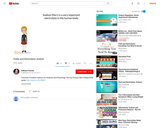
Short video covering sodium and electrolyte balance for anatomy and physiology.
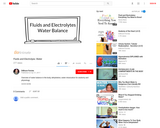
Short video on water balance and fluids and electrolytes for anatomy and physiology

In this lesson, students will deepen their understanding of gender expression through the use of anchor texts and a video. They will apply their understanding through a self-portrait that reflects an iteration of their gender expression.
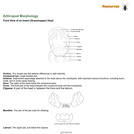
This illustrated guide to a grasshopper's head is designed to help students recognize and learn the many parts found on an insect's head. The single Web page, which can be easily printed for use at field sites or in the lab, also includes a short description for the following labeled parts: ocellus compound eye antenna gena frons clypeus mandible labrum labium palps.
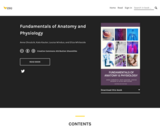
Short Description:
Fundamentals of Anatomy and Physiology is a textbook for biomedical, life science and health majors. The book is organised by body system and contains interactive resources to test your knowledge.
Word Count: 416894
ISBN: 978-0-6487698-5-9
(Note: This resource's metadata has been created automatically by reformatting and/or combining the information that the author initially provided as part of a bulk import process.)
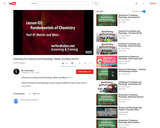
Almost all Anatomy and Physiology course require the student have a basic level of chemistry knowledge. Lesson 02 Chemistry covers the basics of inorganic chemistry, organic chemistry, physics, and nutrition that most A&P student need to make it through the course.
Keep in mind that each of these topics takes about a year of college to gain a better understanding; this video series is just a quick survey to get you up to speed.
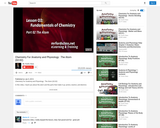
This is the second lesson in the Human Anatomy & Physiology Fundamentals of Chemistry section. This video covers the atom, as well as the proton, neutron and electron.
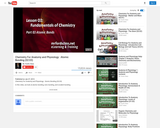
This is anatomy and physiology lecture 3 of the fundamentals of chemistry sections. In this video we look at atomic bonding, ionic bonding, and covalent bonding.
To see the rest of the chemistry videos, please visit me at mrfordsclass.net. Be sure to check out our site for exam reviews, videos, and classroom handouts.

The most recent knowledge of the anatomy, physiology, biochemistry, biophysics, and bioengineering of the gastrointestinal tract and the associated pancreatic, liver and biliary tract systems is presented and discussed. Gross and microscopic pathology and the clinical aspects of important gastroenterological diseases are then presented, with emphasis on integrating the molecular, cellular and pathophysiological aspects of the disease processes to their related symptoms and signs.
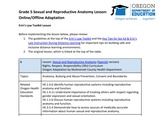
The Oregon Department of Education released this online and offline lesson adaptation, as a part of the Distance Learning for All Erin's Law Toolkit for Districts. The lesson is an Advocates for Youth Rights, Respect, Responsibility (3Rs) Fifth Grade lesson entitled Sexual and Reproductive Anatomy. The full lesson has been adapted by Mulnomah County Health Department to be more trauma-informed, more trans-inclusive, and to prompt more discussion about race and racism. This lesson focuses on the core sexuality education topics: Anatomy, Bullying and Abuse Prevention, Consent, and Boundaries, which are foundational to child abuse prevention education. 3Rs Original Authors: Elizabeth Schroeder EdD MSW, Eva Goldfarb PhD, Nora Gelperin MEd

Although palpation is a foundational skill for many healthcare disciplines, few resources provide comprehensive anatomical information and relate it to real-world clinical situations. With its detailed descriptions of musculoskeletal anatomy, instructions for palpating anatomical structures, depictions of basic injuries, and correlations with clinical practice, Hands-on Anatomy successfully bridges this gap.
Hands-on Anatomy targets undergraduate or graduate students who have completed an introductory anatomy course and are beginning to apply their anatomical knowledge to the human body, as well as healthcare professionals engaged in patient assessment and treatment. Organized by region of the body, chapters discuss skeletal landmarks, muscles, ligaments, and neurovascular structures, with a focus on how to palpate these structures. Additionally, guides on assessing the range of motion of joints are provided, along with descriptions of common clinical scenarios relating to each body area. The text is supplemented with images of skeletal landmarks and muscular anatomy, photos of surface landmarks and range of motion actives, and end-of-chapter review questions to ensure understanding and retention of what was described.
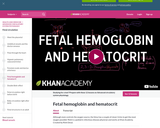
Although mom controls the oxygen source, the fetus has a couple of clever tricks to get the most oxygen possible! Rishi is a pediatric infectious disease physician and works at Khan Academy.

In this lesson, students will learn about and practice the fundamentals of healthy communication and boundary-setting in order to strengthen healthy relationship skills. Students will identify characteristics of healthy & unhealthy relationships.
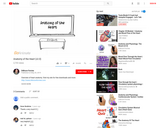
Short video on heart anatomy for anatomy and physiology.

An open textbook and photographic tutorial library created and compiled by
Word Count: 29926
(Note: This resource's metadata has been created automatically by reformatting and/or combining the information that the author initially provided as part of a bulk import process.)
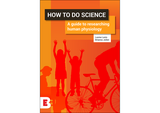
How to do science: a guide to researching human physiology has been written for students of the life sciences who are actively engaged in the scientific process. A lot of support is available for students learning scientific facts, but we found that it was harder to find resources to support students to become scientists.
This ebook introduces you to what it means to be a scientist. You will learn about the scientific method and how to do many tasks of a scientist, your roles and responsibilities as a scientist as well as possible career paths, and how to use your skills as a science graduate to get a leg up in the job market.
This text is published by the La Trobe eBureau.
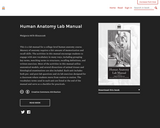
Short Description:
This is a lab manual for a college-level human anatomy course. Mastery of anatomy requires a fair amount of memorization and recall skills. The activities in this manual encourage students to engage with new vocabulary in many ways, including grouping key terms, matching terms to structures, recalling definitions, and written exercises. Most of the activities in this manual utilize anatomical models, and several dissections of animal tissues and histological examinations are also included. Each unit includes both pre- and post-lab questions and six lab exercises designed for a classroom where students move from station to station. The vocabulary terms used in each unit are listed at the end of the manual and serve as a checklist for practicals.
Word Count: 24242
(Note: This resource's metadata has been created automatically by reformatting and/or combining the information that the author initially provided as part of a bulk import process.)

Word Count: 48160
(Note: This resource's metadata has been created automatically by reformatting and/or combining the information that the author initially provided as part of a bulk import process.)
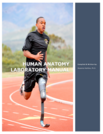
This human anatomy laboratory manual acts as a textbook for undergraduate human anatomy courses. Each chapter has review questions and laboratory activities, and most chapters also have collaborative learning activities. There are 22 chapters total. The chapters are:
Chapter 1: Introduction to Anatomy & Anatomical Terms
Chapter 2: Introduction to Microscopes
Chapter 3: Cell Structures & Types
Chapter 4: How Cells Divide (Mitotic Cell Division)
Chapter 5: Tissues
Chapter 6: Integumentary System
Chapter 7: Introduction to the Skeletal System
Chapter 8: Axial Skeleton
Chapter 9: Appendicular Skeleton
Chapter 10: Articulations (Joints) & Movements
Chapter 11: Introduction to Skeletal Muscles
Chapter 12: The Skeletal Muscles
Chapter 13: Introduction to the Nervous System
Chapter 14: Central Nervous System
Chapter 15: Peripheral Nervous System
Chapter 16: Special Senses of the Nervous System
Chapter 17: Cardiovascular System - The Heart
Chapter 18: Cardiovascular System - The Blood Vessels
Chapter 19: Respiratory System
Chapter 20: Digestive System
Chapter 21: Urinary System
Chapter 22: Reproductive Systems